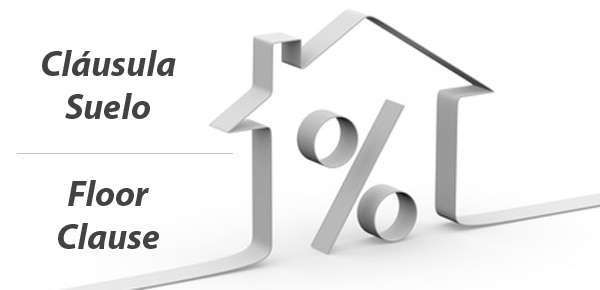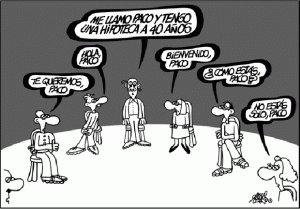Purchase contracts in Spain and the COVID-19 Corona crisis

It is clear that the healthcare crisis caused by the Coronavirus (COVID-19) has had a huge impact on all areas of our daily lives. The state of alarm decreed by the Spanish government, as well as many other governments in foreign countries, has caused movement restrictions and limitations, the closure of the airspace, the paralysis of the business fabric and government agencies, etc. People’s everyday lives have been severely affected from a social and economic standpoint.
With this article, we would like to respond, as much as possible, to the doubts and uncertainties of foreign clients buying homes in Spain, as well as their sellers. We are referring to sales between individuals that were already underway with signed contracts but which were ‘surprised’ by the COVID-19 crisis and the measures adopted by the Spanish government decreeing the state of alarm.
At the end of the article, we will comment briefly on the legal situation of sales of new homes or off-plan sales from developers.
What does Spanish law say on the fulfilment of purchase contracts?
The first thing that must be said emphatically is that, under Spanish law, the clauses agreed in a contract have the force of law and, therefore, the parties are required to fulfil them. In other words, the impossibility of fulfilling what has been agreed in a contract is an exception and is interpreted very restrictively.
The Spanish Supreme Court, when dealing with potential breaches of contract and to avoid the loss of the money paid, has established that the party in breach has to evidence and argue the reasons behind said breach, as well as prove that it did everything possible to perform the contract.
However, even after establishing the impossibility of complying with the contract, if it is possible to amend or adapt it so it can be fulfilled, the parties must seek to modify the contract in that way, to solve the problem arising from the situation caused by the state of alarm and the COVID-19 Corona crisis. In other words, when faced with the potential avoidance of the contract by one of the parties, they must always attempt to reach an agreement to fulfil it.
Which property sales could be affected by the state of alarm?
In my opinion, the conveyance contracts that may be affected are those that required either of the parties to fulfil a requirement or condition agreed in the contract before the execution of the public deed of sale and that condition is affected by these months of paralysis.
Due to the paralysation of activities and movement limitations, it is very possible that some of the requirements established in a conveyance contract cannot be fulfilled, as the estimated time to process or manage these were calculated based on a normal situation, which has not existed since 13 March. As an example, we can mention the following:
Purchase contracts in the state of alarm:
- For the conveyance contract to establish the condition of being granted a building permit or the record for legalisation of a home, such as DAFO in rural homes in Andalusia. As city halls are paralysed or working at minimum levels, it is very possible for these applications not to be processed until the state of alarm is brought to an end.
- For the condition to be obtaining a Spanish mortgage. If the appraiser cannot travel to visit the property or the bank’s risk department is not operating, this process will be paralysed, making the average resolution time much longer than initially expected.
- For the date of signing the conveyance contract and recording it as a public deed to coincide with the period of the state of alarm and/or the restrictions on commercial flights, making it impossible for either of the parties to attend the notary office.
- The impossibility to obtain an NIE (foreigner’s identification number.), which is necessary to sign a conveyance contract before a notary and pay the corresponding taxes. The processing of these documents is currently suspended. The national police stations in Malaga that we asked don’t know when they’ll be able to open to accept new NIE applications.
- Either of the parties being admitted into hospital or in quarantine.
What should the seller and buyer do in this situation?
Well, the first thing is to see if the private contract contains any clause that governs these situations since, as I’ve mentioned, the sales or purchase contract has the force of law and binds the parties. However, in conveyance processes where the deed cannot be signed for reasons arising from the coronavirus crisis, what both parties should do would be to amend the contract and extend it, to give time to the party that needs it in order to complete the sale. In most situations, it is only a matter of time for that circumstance or condition that is currently impossible to fulfil to be fulfilled later on.
Likewise, in the event of inflexibility and the refusal of either of the parties to grant such an extension to the conveyance contract, in most cases there would be no legal grounds to terminate the contract and/or claim damages. As mentioned above, the parties must always attempt to reach an agreement to comply with the contract.
Is it possible for the buyer to terminate the contract due to the COVID-19 crisis?
Withdrawing from a conveyance contract due to a sudden drop in house prices and in the face of an economic crisis is a complex issue. In this case, we are referring to the buyer having to accredit meeting one of the requirements established in case law for terminating purchase contracts, this being that there has been an extraordinary change in the circumstances leading to the execution of said contract.
In other words, the buyer would have to evidence that the current economic crisis, resulting in a deep and prolonged economic recession, could be openly considered an economic phenomenon able to generate a severe disruption or change in the circumstances leading to the execution of said contract.
In Spain, the courts have been rejecting the possibility to terminate a sales or purchase contract based on this circumstance. However, this possibility should not be ruled out and individual factors should be analysed, such as whether the home will be a primary home or a holiday home, if the buyer was in need of mortgage financing, if the financial situation of the buyer has changed significantly, etc.
What is the buyer’s situation in the sales process?
With this question, what we want to address is the situation of a buyer who made a decision to purchase a home at a specific price a few months ago, based on an economic situation that is in no way similar to the current one.
Let’s imagine Dutch, Belgian, English, Swedish or other foreign people who wanted to invest in property in Malaga or the Costa del Sol, either to obtain a profit or to let it. Clearly, the sales price they agreed was based on the value of that property under the earlier economic situation. For instance, let’s imagine a home in the historic centre of Málaga or Nerja, highly sought-after areas with tourist attractions before COVID-19, with great possibilities for letting in the tourist market, which is currently suspended.
Well, as a buyer, in the event that continuing with the purchase of the property would lead to incurring significant levels of debt, the first thing to do would be to analyse two things:
- The amount of money paid to the seller (usually 10% of the purchase price). Whether the buyer is willing to lose that money, essentially due to thinking that it is better to lose the money and not buy the property.
- The content of the purchase contract clauses agreed in terms of what happens when the buyer breaches the purchase contract. This is an important issue because a breach of contract could lead to different legal situations. The usual process is to execute an earnest money contract, which entails losing the money paid to the seller, leading to the termination of the contract, this being the clause that our firm usually agrees in conveyance contracts. However, if this is not properly drafted in the contract, it is possible for the seller to be entitled to require the buyer to comply with the purchase contract and sign the public deed, even if the buyer agreed to lose the earlier money paid. Obviously, this claim from the buyer would have to be addressed in judicial proceedings, which would take years before the parties get a resolution and usually sellers settle for keeping the money paid as a deposit.
What is the seller’s situation in the selling process?
For sellers, they are most likely the most interested in completing the sale of the home as, certainly, the price set in the sales / purchase contract signed before COVID-19 will be higher than what they can obtain in the short or medium term. Without a doubt, the current situation will lead to a general drop in house prices, even though no one knows how long this will last.
That said, it is possible for sellers who already have a signed contract and who see that buyers are hesitating to complete the conveyance to be interested in making it easier for buyers to complete the purchase. In other words, in this context, negotiating a lower price so that the seller can sell doesn’t seem far-fetched. In the end, the price drop would depend on whether it is very important for the seller to sell right now or they can wait, or whether the money already paid by the buyer is enough compensation for the seller to agree to keep that amount as a penalty instead of negotiating.
What is the situation when purchasing new builds or off-plan homes?
In sales of this type, in terms of the performance of the contract by the buyer, the situation is the same as explained above, in terms of both compliance with the contract and its termination clauses. In my opinion, the buyer’s potential doubts would be determined by the progress of the works and the expected completion date of the development, also thinking about the financial solvency of the developer.
If the buyer signed the sales contract over one year ago, when the market was experiencing a good time and prices were rising, it is very likely for the price agreed at that time to be lower than what they could find at the beginning of this year, for instance. On the other hand, if the works are close to completion, there would be little doubt as to whether the developer will complete them, as they would be almost completely sold and few buyers would be thinking about terminating the purchase contract, since they would have already made significant payments on account for their homes. In this case, the scenario for the buyer is safe.
In the case of developments where construction has not yet started but which were already being marketed, with expected completion likely coming in a year or two, the scenario is different. In this case, buyers who are in doubt and recently signed the private contract must assess the price of the property and its completion date, as well as find out the number of homes with signed contracts sold by the developer, in order to make a decision. However, if the private contract has not yet been signed and only a reservation had been agreed with the developer, they can withdraw from it and recover the amount paid. They can also wait longer, as developers are likely to lower prices, depending on how long the crisis lasts.
In terms of the solvency of developers, due to the obligation to guarantee all the amounts paid during construction once the private contract has been signed, the buyer would have complete legal certainty in the event that the developer is unable to complete construction. This situation is in no way similar to the 2008 crisis, where many buyers lost their payments on account.
Individual review situation purchase contracts
However, these sales processes starting prior to the COVID-19 crisis can lead to complex situations that should be analysed individually and always with the advice of a lawyer. This is not the time to make decisions without the appropriate legal knowledge, taking into account that a private conveyance contract has already been singed. Rushing is never a good idea.
Author: Gustavo Calero Monereo, lawyer at C&D Solicitors, (Málaga, Andalusia)
















